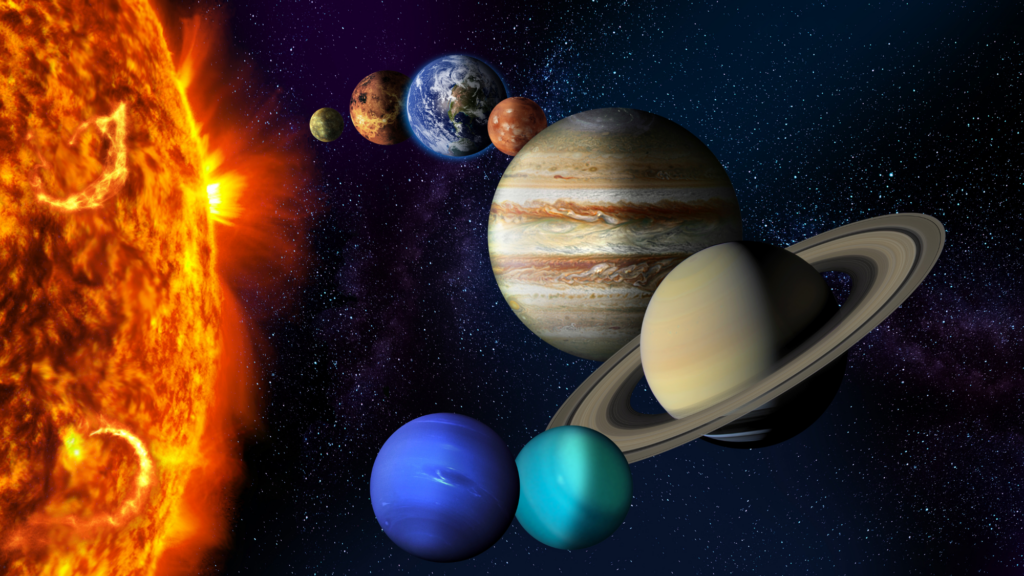CEBU CITY, Philippines—Celestial enthusiasts and astronomers alike will be treated to a rare cosmic event on April 4, 2024—a planetary alignment over the Philippine skies, where four planets in our solar system will appear to line up in a striking display.
The planetary alignment, in time for the celebration of Global Astronomy Month, will feature Venus, Saturn, Mars, and Neptune, state weather bureau Pagasa said.
While Venus, Saturn, and Mars will be visible to naked eye, viewing Neptune will require a modest telescope or high-powered binoculars, Pagasa said in a video of astronomical events this April.
What is Planetary Alignment?
Planetary alignment occurs when planets in our solar system appear to form a straight line or a close grouping in the sky from the perspective of an observer on Earth.
“A planetary alignment is a term used in astronomy to describe the phenomenon when multiple planets gather closely on one side of the Sun at the same time,” Pagasa said.
“This provides a stunning celestial display that can be observed without the need for special astronomical equipment,” it added.
The dance of the planets in our solar system is a spectacle that has fascinated humanity for centuries.
This alignment, while not as uncommon as some astronomical phenomena, still holds significance and offers a wonderful opportunity for skywatchers to marvel at the wonders of our universe.
How to observe
To observe the planetary alignment on April 4th, all you need is a clear view of the horizon and, preferably, a pair of binoculars or a telescope for a closer look.
The planetary alignment offers a fantastic opportunity to witness the beauty and majesty of our solar system. Whether you’re an experienced astronomer or simply someone who appreciates the wonders of the cosmos, be sure to mark your calendar for this celestial event.
Meanwhile, here’s a list of other astronomical events this April from Pagasa’s Astronomical Diary:
| 01-30 | Global Astronomy Month | — |
| 04 | Planetary Alignment of Venus, Neptune, Saturn and Mars | — |
| 06 | Conjunction of Moon and Mars | 11:51 a.m. |
| 06 | Close approach of Moon and Mars | 01:22 p.m. |
| 06 | Conjunction of Moon and Saturn | 05:24 p.m. |
| 06 | Close approach of Moon and Saturn | 06:18 p.m. |
| 08 | Moon at Perigee (Distance = 358,951.314 km) | 01:51 a.m. |
| 11 | Close approach of Mars and Saturn | 04:35 a.m. |
| 11 | Conjunction of Mars and Saturn | 11:00 a.m. |
| 11 | Conjunction of Moon and Jupiter | 05:09 a.m. |
| 20 | Moon at Apogee (Distance = 405,570.873 km) | 10:10 a.m. |
| 21 | Comet 12P/Pons-Brooks reaches peak brightness and passes perihelion | — |
| 22 | Lyrid Meteor Shower (ZHR = 18) | — |
| 23 | π-Puppid Meteor Shower (ZHR = var) | — |
READ MORE:
DepEd: Hot weather prompts schools to suspend in-person classes
